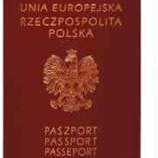
Lifestyle/Community

Dual Lithuanian-South African citizenship becomes easier
MICHAEL BELLING
According to Cape Town immigration lawyer Gary Eisenberg, the new law follows several years in which the Lithuanian authorities refused to grant dual citizenship applications on the grounds that there were no pogroms between 1918 and 1940 – when most Jews left Lithuania for South Africa. They claimed therefore that people were not forced to flee the country because of persecution and the law only made dual citizenship available to those who had fled.
“In order to qualify, it had to be proven that the ancestor fled Lithuania on the basis that exceptional circumstances existed which led to the forced departure, between 1918 and 1990, to reside permanently in another state,” Eisenberg said.
“A strict approach taken by the Lithuanian Constitutional Court in 2013 [with its narrow interpretation of the word ‘fled’] led to many dual citizenship applications being refused by the migration department.”
“This in turn meant that South Africans had to renounce their South African citizenship to be eligible for Lithuanian citizenship by reinstatement,” he said.
This is no longer the case. The amended law uses the term “left” instead of “fled”.
Eisenberg added that obtaining dual Lithuanian citizenship did not endanger South African citizenship.
Under South African law, a citizen who acquires the citizenship of another country by a “voluntary and formal act” could lose his or her South African citizenship, but this does not apply to the Lithuanian situation.
“Dual South African Lithuanian citizenship in this case does not fall into a ‘voluntary and formal act’, but is a restoration of rights – it is citizenship by reinstatement,” Eisenberg said.
Some people hold the view that South African Jews should not apply for dual Lithuanian citizenship because of the often active role Lithuanians played in assisting the Nazis persecute the Jews during the Second World War.
Eisenberg sees this differently. “Of course there was tremendous collaboration during the Second World War. But now Lithuania wants to do the right thing as part of the European Union and be seen to be doing so.”
Today there is collaboration between Jews and non-Jews there to restore Jewish historical sites and recognise the role Jews played, for example, through the Litvak World Project.
Eisenberg encouraged eligible South Africans to apply for their dual citizenship.
“Lithuania, generally, prohibits dual nationality, but this provision is the exception to the general rule. Once Lithuanian citizenship has been reinstated to the former citizen, their immediate relatives become eligible to apply for Lithuanian citizenship by descent,” he said.
Lithuania is part of the European Union making it extremely beneficial for South African passport holders to hold a Lithuanian dual citizenship.
“Citizens of the European Union are eligible for visa-free travel and have the right to live in the European Union and certain non-EU countries,” Eisenberg said.





Trevor Balkinskas
September 8, 2024 at 6:54 pm
My father was born in Vilkomir Lithuania 20 March 1919
And left there with his parents in 1923/1924
His birth name was Ichiel Balkanskas
Jonty Maltz
November 21, 2024 at 5:55 am
My grandmother, Sonia (Rabinowitz) Davidson also came from Vilkomir And arrived in SA ? 1906.I live in the US but want to start the process of applying for Lithuanian citizenship.